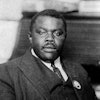HBCUs routinely get denigrated and their academic performance often gets unfairly judged, but that’s largely because leaders at the institutions have done a poor job of sharing their success stories with the public and the press.
That was one of the major themes that emerged Thursday during a gathering of half a dozen HBCU presidents who assembled to discuss ways to counter the longstanding and lingering notion that their colleges and universities lack when it comes to essentiality.
“We have to better tell our own story,” said Dr. Mary Evans Sias, president of Kentucky State University.
“We have not been good at all in coming up with the narrative that explains what we do and what we do very well,” Sias said. “And shame on us for not doing that.”
Dr. Sias made her remarks in Atlanta Thursday at a meeting hosted by the Southern Education Foundation in advance of the 2011 HBCU Governance and Institutional Effectiveness Seminar, which this weekend will convene more than 100 HBCU presidents and trustees to deal with the subjects of academic program innovation, fundraising and governance.
Dr. John Silvanus Wilson Jr., Executive Director of the White House Initiative on HBCUs, will speak at the seminar and praised the HBCU leaders for having “the right discussion,” particularly in light of the Obama Administration’s goal to restore the United States to being the country with the highest proportion of college-degree holders by the year 2020.
“This is a very different and refreshing panel,” Dr. Wilson said, adding at the end of his remarks that President Obama “understands very clearly the importance of HBCUs.”
Despite getting good vibes from the White House, the HBCU leaders who spoke Thursday grappled with the fact that they are not always held in such high esteem in American society as a whole and by the press in particular.
Among other things, they complained that their often lackluster graduation rates are associated more with the nature of their institution as opposed to the socioeconomic profiles of their students, which they say research has shown to be one of the greatest determinants of graduation.
Dr. Walter Kimbrough, president of Philander Smith College, said he recently ran some figures at his school and determined that the average income for his students’ families was $30,800.
“All the national studies that deal with graduation rates base it on socioeconomic indicators,” Dr. Kimbrough said. “Those are the kinds of things we’re dealing with.”
At the same time, Dr. Kimbrough—who acknowledged that his institution’s graduation rates “haven’t been stellar in years”—suggested that HBCUs cannot be content to just write off low graduation rates on the low income levels of their students.
Rather, he said, it’s important for HBCUs to “be more on the offensive” and start benchmarking their progress on graduation rates and other key indicators of academic success.
“I think we’ve got to show, ‘This is where we were, this is where we are now,’ and that silences everybody because success silence all the critics,” Dr. Kimbrough said.
Dr. David Wilson, president at Morgan State University, said figures show that Morgan State ranks No. 1 in Maryland when it comes to producing STEM field graduates but that the university isn’t regarded in a way that reflects its rank.
“Because the story has not been told, when people think about STEM production, they don’t think Morgan State,” Wilson said. “We as an institution cannot afford to look at the media as our enemy. We have to engage the media in a way where they understand our stories.”
That involves actually being responsive to media inquiries, using social media, such as Facebook and Twitter, to share updates on positive developments, and developing media strategies, such as writing editorials for mainstream newspapers as well as those that specialize in higher education, panelists said.
Special attention should be paid to the role that HBCUs play in research, said Dr. Carlton E. Brown, president at Clark Atlanta University.
“Many of our institutions are vital parts of the American research community,” Dr. Brown said, relating the role his own institution has played in developing research on prostate cancer—a disease that disproportionately affects Black men.
He related that, at Clark Atlanta, the university is very deliberate about teaming up experienced researchers with novices and less experienced researchers in order to better develop researchers of the future.
“We’re growing research from the bottom up,” Dr. Brown said. “You don’t grow the next generation of researchers without deeply involving them in the research.”
Other speakers at Thursday’s event included Tougaloo College President Beverly Hogan, who spoke about how her university graduates represent about a third of Mississippi’s teachers and lawyers as evidence that HBCUs are having a “tremendous impact,” and North Carolina Central University chancellor Charlie Nelms, who said HBCUs have to “hold ourselves to higher levels of accountability” and reform gateway courses so more students can progress to their respective majors.



















